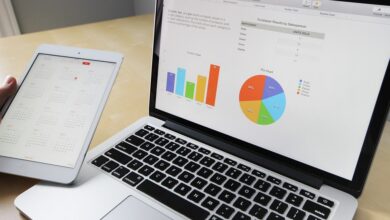
The Science Behind Planner Utilization: How It Rewires Your Brain for Success
In today’s fast-paced world, it can be easy to feel overwhelmed and disorganized. We have so many things to do and so little time to do them, which can leave us feeling stressed and unproductive. This is where the humble planner comes in. A planner is a powerful tool that can help us manage our time, set goals, and stay on track. But did you know that using a planner can actually rewire your brain for success? In this article, we’ll explore the science behind planner utilization and how it can positively impact your brain and your life.
The Science Behind Using a Planner
It’s no secret that using a planner can help you stay organized and on top of your tasks. But what is the science behind this? When you write down your tasks and goals in a planner, you are engaging in a process called externalizing cognition. This means that you are taking the information that is in your mind and putting it down on paper or digital format. This simple act has been shown to reduce cognitive load, which is the amount of mental effort required to process information.
A study published in Psychological Science found that externalizing cognition can free up mental resources, making it easier to focus on the tasks at hand. This can lead to increased productivity and a greater sense of control over your life. Additionally, when you use a planner to set goals and track your progress, you are engaging in a process called goal-setting theory. This theory suggests that setting specific and challenging goals can lead to higher performance and increased motivation.
Rewiring Your Brain for Success
When you use a planner to set and achieve your goals, you are actually rewiring your brain for success. This is because the act of setting and achieving goals triggers the release of dopamine, a neurotransmitter that is associated with pleasure and reward. Dopamine is also involved in the brain’s reward-motivation system, which is responsible for encouraging us to take action towards achieving our goals.
In a study published in the Journal of Neuroscience, researchers found that when people successfully achieve a goal, it activates the brain’s reward circuitry, leading to a surge in dopamine. This not only makes us feel good, but it also strengthens the neural connections associated with the specific action or behaviour that led to the reward. In other words, achieving a goal reinforces the neural pathways in your brain that are responsible for that behaviour, making it more likely that you will repeat it in the future.
Using a planner to set and achieve goals can also help to cultivate a growth mindset. A growth mindset is the belief that our abilities and intelligence can be developed through dedication and hard work. Research has shown that people with a growth mindset are more likely to achieve success in their personal and professional lives. By setting and achieving goals with the help of a planner, you are reinforcing the belief that you have the ability to improve and grow, which can have a positive impact on your confidence and self-esteem.
How to Maximize the Benefits of Planner Utilization
Now that we understand the science behind planner utilization, how can we maximize its benefits? Here are a few tips to help you make the most of your planner and rewire your brain for success.
– Set specific and challenging goals: When setting goals in your planner, be as specific as possible. Instead of simply writing “exercise more,” try setting a goal to “go for a 30-minute run three times a week.” Additionally, make sure your goals are challenging but achievable. This will help to trigger the release of dopamine and strengthen the neural connections associated with that behaviour.
– Use visual cues: Research has shown that visual cues can help to reinforce goals and make them more likely to be achieved. Try using stickers or symbols in your planner to represent your goals, or create a vision board to visually remind yourself of what you’re working towards.
– Reflect on your progress: Take time to reflect on your progress and celebrate your achievements. This will help to reinforce the neural pathways associated with your goals and motivate you to continue working towards them.
– Embrace flexibility: While it’s important to set specific goals, it’s also essential to be flexible and adapt to changing circumstances. If a goal becomes unattainable or no longer aligns with your priorities, don’t be afraid to adjust it or set a new one.
In conclusion, using a planner can have a profound impact on your brain and your life. By externalizing cognition, setting and achieving goals, and cultivating a growth mindset, you can rewire your brain for success and become more productive, motivated, and confident. So, dust off that planner and start reaping the benefits of this powerful tool today. Your brain will thank you for it!





